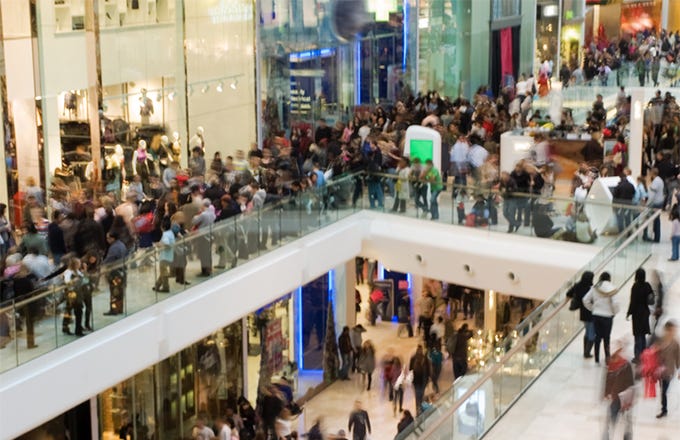
As Thanksgiving approaches, you might be gearing up to stuff yourself with turkey and dressing, spend some time with the family and watch a little football. Then again, if you’re a die-hard bargain shopper, turkey is the farthest thing from your mind. That’s because you’re too busy making a plan of attack for the biggest shopping day of the year.
Each year, on the Friday after Thanksgiving, consumers flock to Walmart, Best Buy, Toys “R” Us and other stores in hopes of scoring the best shopping deals of the year. The most fanatical Black Friday extremists skip Thanksgiving dinner altogether and camp out in parking lots for days or even weeks. Frays and brawls break out in stores as strangers fight over the last marked down Hatchimal or deeply discounted Samsung HDTV, with police officers called in for crowd control. Appallingly, a worker at a big store was even trampled to death one Black Friday as throngs of shoppers pushed their way into the store when the doors
As crazy as it all sounds, millions of shoppers across the U.S. participate in this strange ritual every year. In fact, during the 2015 Black Friday weekend (Thursday to Sunday), 151 million Americans either took the trip stores or shopped online, according to the National Retail Federation.
So what’s the story behind this enchanted shopping day and how did it become known as “Black Friday”?
The Surprising Origins of Black Friday
The concept of retailers throwing post–Turkey Day sales started long before the day was actually coined “Black Friday.” In an effort to kick off the holiday shopping season with a bang and attract hordes of shoppers, stores have promoted major deals the day after Thanksgiving for decades. Although many people mistakenly believe the name “Black Friday” is simply an accounting reference – as in retailers are moving from “in the red” to “in the black” by boosting profits – this is not how the name was born.
The term was actually coined by overworked Philadelphia police officers. In the 1950s, crowds of shoppers and visitors flooded the City of Brotherly Love the day after Thanksgiving. Not only did Philadelphia stores tout major sales and the unveiling of holiday decorations on this special day, but the city also hosted the Army/Navy football game on Saturday of the same weekend. As a result, traffic cops were required to work 12-hour shifts to deal with the throngs of drivers and pedestrians, and they were not allowed to take the day off. Over time, the annoyed officers started to refer to this dreaded workday as “Black Friday.”
The term quickly gained popularity and spread to store clerks who used “Black Friday” to describe the long lines and general chaos they had to deal with in the department stores. In 1961, concerned that the negative-sounding name would deter shoppers from coming into the city, store owners and city officials pushed to change the name to “Big Friday.” To their dismay, the more positive sounding term never caught on with consumers. Before long, Philly retailers decided to embrace the name “Black Friday,” even plastering the catchphrase on newspaper ads and other sales promotions.
The Phrase Goes National
The term “Black Friday” remained Philadelphia’s little inside joke for a few decades. Although it spread to a few nearby cities, such as Trenton, New Jersey, the phrase stayed relatively close to home for quite a few years. It wasn’t until the 1980s that people outside of Philly started using the term. Finally, in the mid-1990s, “Black Friday” swept the nation and started to appear in retail ads and promotions across the United States.
The Evolution of Black Friday
Somewhere along the way, Black Friday made the giant leap from congested streets and crowded stores to fevered shoppers fist-fighting over parking spaces and pepper-spraying each other as they tussle over the last Tickle Me Elmo. When did Black Friday become the frenzied, over-the-top shopping event it is today?
That would be in the 2000s, when Black Friday was officially designated the biggest shopping day of the year. Until then, that title had gone to the Saturday before Christmas. Yet as more and more retailers started touting “can’t miss” post-Thanksgiving sales and the Black Friday discounts grew deeper and deeper, American consumers could no longer resist the pull of this magical shopping day.
Today, Black Friday is becoming an increasingly lengthy event. Following the lead of several other retailers, Walmart decided to make Black Friday a five-day affair in 2014. Cyber Monday deals are now available at both Walmart and Macy's from 12.01 am Thanksgiving day.
No comments:
Post a Comment